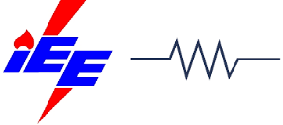Difference Between Stator & Rotor
Difference Between Stator & Rotor
The stator and rotor both are the parts of the electrical motor. The significant difference between the rotor and the stator is that the rotor is the rotating part of the motor whereas the stator is the stationary part of the motor. The other differences between the stator and rotor are shown below in the comparison chart.
The stator frame, the stator core and stator winding are the parts of the stator. The frame supports the core of the stator and protects their three-phase winding. The stator core carries the rotating magnetic field which induces because of the three-phase supply.
The rotor is situated inside the core of the stator. Squirrel cage and the phase wound rotor are the types of the rotor. The rotor winding is excited by the DC supply. The field winding induces the constant magnetic field in the core of the rotor.
Comparison Chart
Definition of Stator
The stator is the static part of the motor. The main function of the stator is to generate the rotating magnetic field. The stator frame, stator core and stator winding are the three parts of the stator. The stator core support and protect the three-phase winding of the stator. High-grade silicon steel stamping makes the core of the stato
Definition of Rotor
The rotating part of the motor is known as the rotor. The rotor core and the rotor winding are the part of the rotor. The winding of the rotor is excited by the DC supply. The squirrel cage and the phase wound are the types of the rotor.
The core of the squirrel cage rotor is made of the cylindrical iron core. The core has a semi-circular slot on their outer surface on which the copper or aluminium conductors are placed. The conductors are short-circuited at the ends with the help of the aluminium or copper rings.
Working of Rotor & Stator
The stator generates the rotating magnetic field because of the three-phase supply. If the rotor is in the standstill condition, then the electromagnetic force induces in them because of the electromagnetic induction phenomena.
The electromagnetic induction is the phenomena in which the emf induced in the current carrying conductor because of the variable magnetic field. The current induces in the rotor which causes the rotor to move.
Key Differences Between Stator and Rotor
- The stator is the stationary part of the machine, whereas the rotor is the movable part of the machine.
- The stator core, stator winding and the outer frame are the three parts of the stator whereas the rotor core and field winding are the parts of the rotor.
- The three-phase supply is given to the winding of the stator. The rotor is excited by the DC supply.
- The winding arrangement of the stator is more complex as compared to the rotor.
- The stator winding is highly insulated because high voltage induces in it. Whereas, the rotor has low insulation.
- The size of the stator winding is large for carrying the heavy current as compared to the field winding.
- The cooling system of the stator is good as compared to the rotor Because the stator is stationary.
- The friction loss is less in the rotor as compared to the stator because of its low weight.
Conclusion
The static part of the machine is known stator. And the rotating part of the machine is known as the rotor. The rotor is placed inside the core of the stator. The three-phase is supplied to the stator winding which produces the rotating magnetic field. The rotor rotates inside the rotating magnetic field. Thus, an emf is induced because of the interaction of magnetic field of rotor and stator.






![DC TO AC INVERTERS – HOW DO THEY WORK? [VIDEO]](https://blogger.googleusercontent.com/img/b/R29vZ2xl/AVvXsEg59yq5Vd1HYommnpKaPPB-vP957sQXVOuL6NuCdnmNNz5_EXXm_DQ5p3U54OGi5hfYTECUDnGpDPYRV2Wz7hK5x8AogOi8Vh6XwDdYbBoMeqZF4jL2_HFfANtVwUSKa79eFpaxZtcFC_o/s72-c/KR9cBXL1IWiSJmsb57vmxCX_OOvkUuWaDymVMTIxguLJT3agnt6IkgJagK8580hk.jpe.jpeg)

No comments